The Last of the Fathers
Saint Bernard of Clairvaux and the Encyclical Letter
Doctor MellifluusThomas Merton
A Harvest Book
Harcourt Brace & Company
San Diego New York London
Copyright 1954 by The Abbey of Our Lady of Gethsemani
Copyright renewed 1982 by The Trustees of the Merton Legacy Trust
All rights reserved. No part of this publication may be reproduced or
transmitted in any form or by any means, electronic or mechanical,
including photocopy, recording, or any information storage and
retrieval system, without permission in writing from the publisher.
Requests for permission to make copies of any part of the work
should be mailed to: Permissions Department, Harcourt Brace & Company,
6277 Sea Harbor Drive, Orlando, Florida 32887-6777.
Ex Parte Ordinis
Nihil Obstat: Fr. M. Maurice Malloy, O.C.S.O.
Fr. M. Paul Bourne, O.C.S.O.
Imprimi Potest: Fr. M. Gabriel Sortais, O.C.S.O., Abbot General
Nihil Obstat: John M. A. Fearns, S.T.D., Censor librorum
Imprimatur:  F RANCIS C ARDINAL S PELLMAN , Archbishop of New York
F RANCIS C ARDINAL S PELLMAN , Archbishop of New York
The Nihil Obstat and Imprimatur are official declarations that a book or pamphlet is free of
doctrinal or moral error. No implication is contained therein that those who have granted the Nihil
Obstat and Imprimatur agree with the contents, opinions or statements expressed.
Library of Congress Cataloging-in-Publication Data
Merton, Thomas, 19151968.
The last of the Fathers.
(A Harvest book)
Bibliography: p.
Includes index.
1. Bernard, of Clairvaux, Saint, 1090 or 11153.
I. Title.
[BX4700.B5M4 1981] 271'. 12'024 [B] 81-4105
ISBN 0-15-649438-8 AACR2
Printed in the United States of America
D F H I G E
TO ETIENNE GILSON
CONTENTS
Preface
Letter from the Cardinal Protector
Letter from the Abbot General
1. THE MAN AND THE SAINT
2. SAINT BERNARD'S WRITINGS
3. NOTES ON THE ENCYCLICAL
ENCYCLICAL LETTER: Doctor Mellifluus
Bibliography
Index
Preface
Saint Bernard of Clairvaux, the "Last of the Fathers of the Church," died in his monastery in Burgundy on the twentieth of August, 1153. One of the dominant figures in the history of the Church, and by all odds the greatest in his own century, he had tremendous influence on the political, literary, and religious life of Europe. Yet like other complex and many-sided characters, he suffered a rapid and disconcerting fragmentation at the hands of his own fame. Perhaps he was too great to be remembered in his entirety. It has ended with history celebrating one side of him, theology another, piety a third, his own monastic Order a fourth. At one time we see him a reformer, a preacher of Crusades; at another as the intransigent accuser of heresy; again as the ardent preacher whose devotion to the Humanity of Christ led to the formation of a whole new school of spiritualitythe so-called devotio moderna, of which the principal monument is "The Imitation of Christ." Finally we see him as the lean ascetic who had almost forgotten how to eat. The eighth centenary of his death has seemed a propitious time to bring these fragments together, and nothing has been more effective in doing so than the encyclical, Doctor Mellifluus, issued at the Vatican by His Holiness Pope Pius XII on Whitsunday of 1953.
Not the least of the services that have been performed by this publication is the return to a whole and integral picture of Saint Bernard, with emphasis not on the secondary and accidental phases of his career, but on the most important thing of all: his sanctity, his union with God, his conformity to Christ by perfect charity, and his teaching inspired as much by his study of Scripture and the Fathers as by his own experience of mystical union.
A papal encyclical is never a document of merely transient importance. It is always a concise and fully authoritative summary of the teaching accepted and approved by the Church on a given subject. Doctor Mellifluus tells us what Saint Bernard means to the Church. It presents him to us as a Doctor of the Church, therefore as an organ of the teaching Church and a sure witness of Christian tradition.
Not all the Doctors of the Church enjoy the high-sounding official titles that the schools have attached to the names of some of them. The fashion of giving every doctor a "title" goes back to the thirteenth century, when there was a great confusion of "Universal Doctors," "Irrefragable Doctors," and "Sublime Doctors" in the faculties of the great universities. Not all of them were Doctors of the Church, by any means. Only a few of the titles are still commonly knownSaint Thomas Aquinas is the "Angelic Doctor," Saint Bonaventure the "Seraphic Doctor," Duns Scotus the "Subtle Doctor." I do not know when Saint Bernard got to be known as the Mellifluous Doctor. Not in the twelfth century, surely; it sounds like a more recent invention. What it means is "The Doctor whose teaching is as sweet as honey," or more literally, the "Doctor-flowing-with-honey."
The title is significant, after all, because Saint Bernard is sometimes regarded as an angry character. He was not so. There were, indeed, times in his life when he had to be angry in the cause of justice. And he could be splendidly angry. But his doctrine is much less austere and forbidding than that of other writers of his age. He seems extraordinarily gentle when compared with a great reformer of the tenth century, the Camaldolese hermit Saint Peter Damian. Indeed, Saint Bernard seems to have struck an altogether new note of hope and encouragement in medieval spirituality, and it is no exaggeration to attribute to him the current of sweetness and joy that was to become in Francis of Assisi "a stream of the river making the city of God joyful" (Psalm 45:5).
We ourselves are just emerging from a time in which sweetness has been overdone, and perhaps we do not find the concept too attractive. Let us not, by any means, associate the sweetness of Saint Bernard with the insipid sentimentality and bad taste of a piety that is untrue. Sentimentality is, after all, only a fake. It is a meretricious pretense of emotion, and has nothing to do with genuine human feeling, except that it sometimes gets itself accepted as a passable imitation. The falsity of this kind of piety lies precisely in the fact that it appeals to nothing except the emotions, and in so doing it fails even to arouse a mature and integrally human emotional response. The preaching of Bernard of Clairvaux does have emotional repercussions. Let us not be so foolish as to deny the emotions a part either in our life or in our religion. But for Bernard emotion is never the end in view. It would be quite false to suppose that the deep and rich religious experience everywhere reflected in Saint Bernard's writings and in his life was something that had been sought for its own sake. The sweetness of Bernard remains clean because he seldom stops to think subjectively about sweetness. It is not at all self-conscious. It does not even spring up from any source within Bernard himself. It is an overflow from the goodness and mercy and charity of God.
This encyclical brings out quite clearly that the "honey" in the doctrine of Bernard is not the cloying sweetness of a soul enclosed within itself, but the clean, fresh sweetness of the fields and the forest. It is the breath of true life, of divine life, of supernatural charity, and of the Holy Spirit. It is the happy vitality of a soul made alive by self-sacrifice, and the joy of a heart that lives no longer for itself but for others, and above all for God. In short, the "honey" of Saint Bernard's doctrine is nothing else but the spiritual peace distilled in the silence of the monastic life. The essentially monastic character of all Saint Bernard's writing is what gives it a very special quality of its own. It is this character that especially recommends his books to us now, in an age that is proving itself hungry for the spiritual provender that has lain hidden, all these centuries, in Christian monasticism.

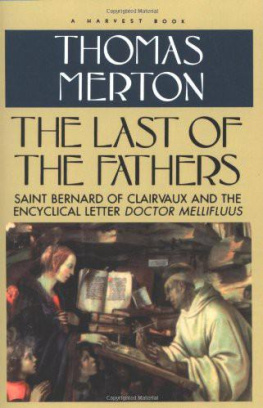
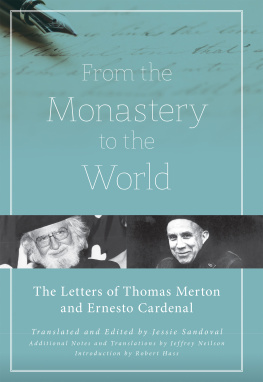

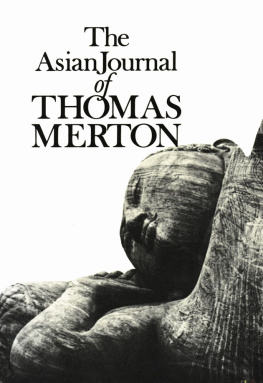
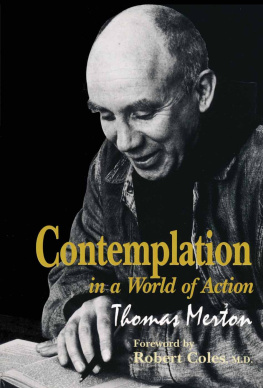

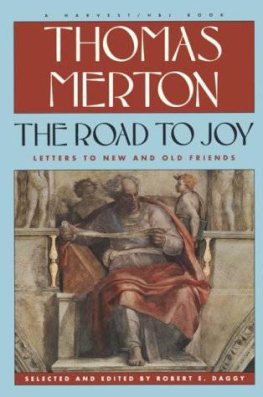



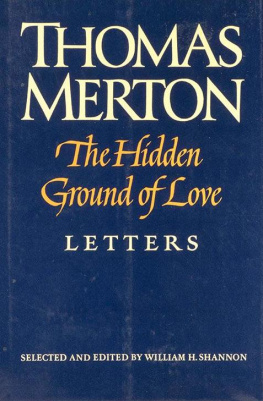

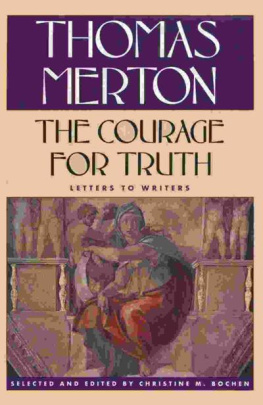
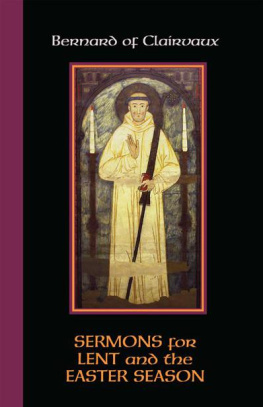
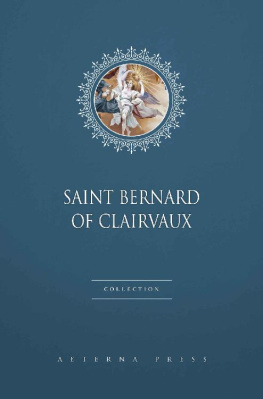
 F RANCIS C ARDINAL S PELLMAN , Archbishop of New York
F RANCIS C ARDINAL S PELLMAN , Archbishop of New York